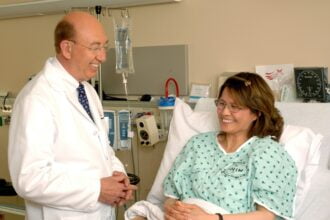Naturopathic medicine is an alternate form of medicine with its roots in numerous traditional healing systems. The ideology and methods of naturopathy medicine have substantially grown over the years as a safe and effective alternative for medicine. A growing number of people are choosing naturopathy medicine for its focus on prevention, wellness, and natural approaches to managing illness, but there is a lack of knowledge that creates a stigma around naturopathy medicine and its effects on people’s health. The stereotypes and myths of naturopathic medicine repel many potential patients. Here are five common misconceptions about naturopathic medicine:
- Naturopathy is Not Based in Science
Naturopathic medicine is someone’s considered unscientific. At its origins, naturopathic medicine seeks to correct symptoms and dysfunction in a person’s body and mind that are caused by disturbances in the determinants of health. These elements are indispensable to a person’s health, such as clean water, nutrition, exercise, sleep, healthy relationships, fresh air, good posture, prenatal status, and much more. A naturopathy practitioner will work with a patient to correct these underlying causes, which is based on an admiration of physiology, biochemistry, and bodily processes. Naturopathy medicine, which focuses on thwarting and treating the original reasons for illness, has long been supported by research.
- Conflict Between Naturopathy and Conventional Medicine
A misconception of naturopathic medicine is that practitioners are opposed to traditional medicine and advise patients to stop their regular health care. This is an inaccurate misconception, and numerous naturopathic doctors accept the necessity of a patient’s use of pharmaceutical medicine and recognize that in various situations, naturopathy treatments are being used in conjunction with prescription drugs. The two treatments working together can be beneficial for a patient, while pharmaceuticals are effective in treating symptoms, and naturopathic medicine works at healing underlying causes of a patient’s ailment.
- Naturopathic Doctors Are Not Trained
It is a misconception that there is very little training into becoming a naturopathic doctor, especially when compared to the practice a medical doctor receives. However, naturopathic doctors attend a four-year, accredited medical school, which is similar to medical doctors, naturopathy students gain a comprehensive knowledge of biomedical sciences by taking anatomy, physiology, pathology, pharmacology, and biochemistry courses. To be seen as an ND, they must obtain a license by passing the Naturopathic Physicians Licensing Exam and must apply for licensure in their state.
- Naturopathic Treatments are Dietary Supplements
Some people’s misconception is that visiting a natural food store or stocking up on supplements is equivalent to seeing a naturopathic doctor, but naturopathy consists of more than administering supplements. Naturopathy develops comprehensive treatment plans that help patients maximize their health through diets, lifestyle choices, and environments. In the end, if it is necessary, naturopathic doctors will refer patients to medical doctors to perform surgeries and prescribe medicines. Naturopathy is much more than natural food, and practitioners are trained to find and implement the very best treatment options for their patients, allowing them to develop plans that are more involved and individualize that just using enhancements.
- Naturopathy is Futile
A misconception is that naturopathic medicine treatment options are ineffective compared to the more conventional medicine. However, naturopathy has been proven over the year to have effective in treating and preventing various medical problems, all while providing minimal side effects. The conditions handled can be as assorted as anxiety, autism, heartburn, skin infections, asthma, pneumonia, irritable bowel syndrome, Celiac disease, allergies, thyroid diseases, migraines, and arthritis. Final Thoughts Today’s population is more and more conscious of their health when it comes to using preventative measures, wellness, and natural approaches to manage an illness. Naturopathy’s purpose is to educate people to be more conscious of their health by minimizing signs of sickness, supporting the body’s capacity to heal, and balancing the body so that in the future, the disease is less likely to occur. Even with the growth in natural medicine, there still is confusion on the role of naturopathic doctors and the practice of naturopathy medicine, but a licensed naturopathic doctor will ask questions about a patient’s diet, lifestyle, family, background, and environment, as well as the history of their illness and complaints. Once a naturopathic practitioner has gathered their patient’s health history, the naturopathy doctor will use other techniques, such as kinesiology, iridology, blood analysis, stool and urine samples, hair analysis, and functional testing to determine the cause of illness and the right treatment plan for their patient.









